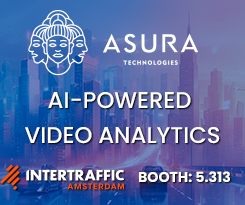
Landmark report released for China on public-private cooperation
17 July 2013
by Richard Forster
As part of its Urban Infrastructure Initiative, the World Business Council for Sustainable Development (WBCSD) has released its report on Yixing, a city of 1.25 million inhabitants in the Shanghai-Nanjing-Hangzhou delta, which was selected as the pilot city for China.
The Urban Infrastructure Initiative (UII) was launched by the WBCSD in 2010 to provide an interdisciplinary team of sustainability experts from industry who would work with city officials to assist with infrastructure development in that city. The experts are provided at the companies’ expense to emphasise the value of involving business at an early stage in the planning process. Initial cities selected for the UII with ICLEI’s assistance were Turku in Finland, Tilburg in the Netherlands and four cities in Gujarat in India. For Yixing, the UII team came from Siemens, Schneider Electric and AECOM, with the aim of assisting the city’s municipal government to be a demonstration city for sustainable development in China. Consultations began in April 2012 and ran until February of this year.
“The Yixing initiative clearly demonstrates the value of engaging a wide range of expertise in the early stages of planning as this allows for a much more holistic view and approach to land use, urban design, energy, mobility, water and green space aswell as the opportunity to explore new and innovative ideas and options,” said Nicholas You, Chairman of the Assurance Group of the Urban Infrastructure Initiative.
Two issues identified in the report for immediate action were the need to use a scientific approach to rational land use and the need to protect cultural and ecological assets through compact mixed-use urban design.

“Rational land use planning and mixed use urban design are critical to reducing demand for motorised transport and allowing for a less energy intensive and more people friendly mode of urban mobility,” You added. “Yixing is very much a city defined by its relationship with water. Integrating green space, water ways and watersheds as part of the cityscape will not only protect the natural environment within the city but also enhance Yixing’s unique identity and sense of place.”
The report also identified the potential for substantial improvements in industrial and building energy use with a recommendation for the city to set up an energy management centre to provide better information for policy making and a tracking and management dashboard to measure the carbon footprint of buildings.
According to You, three common mistakes in the planning of many Chinese cities from which Yixing can learn are the design of road networks, the size of city blocks, and low density.
“All three of these design options increase car dependency and exacerbate traffic congestion,” said You. “We hope that the Yixing will make good use of a fundamental principle in road network design which is to ensure a hierarchy of avenues, roads, streets and lanes which encourage rather than inhibit walking and bicycling. Large size city blocks also do not favour access to public and mass transit as they increase the distance between bus and tram stops and metro stations. Yixing needs to encourage compact, complete and walkable urban communities that are well connected by mass transit systems.”
A report summarising the experiences, lessons and recommendations of the Urban Infrastructure Initiative, which was also undertaken in Philadelphia (US) and Kobe (Japan), will be produced in the last quarter of 2013, along with a special report on the Latin American pilot city of Guadalajara (Mexico).
You says that the through the UII, global technology companies have brought the benefits of lessons learned from other cities around the world to Yixing. A special presentation on the Yixing initiative will be made to Chinese cities at the City Infrastructure Forum to be held in Chongqing in September.
“The process can be replicated in many ways including city consultations, city-to-city cooperation and, for example, in the forthcoming City Infrastructure Forum to be held in Chongqing where Chinese cities will be able to engage with their counterparts, international organisations, professional associations and technology companies,” said You.
The WBCSD report on Yixing can be accessed in English and Chinese at: http://www.wbcsd.org/uiiyixingreport.aspx
For further information on the City Infrastructure Forum, China, which will take place on 9-10 September 2013, please log on to: www.cities-forum.com











